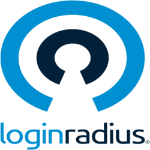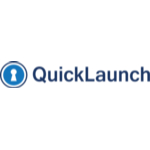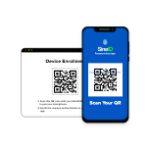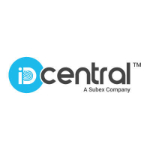TechnologyCounter provides genuine, unbiased real user reviews to help buyers make informed decisions. We may earn a referral fee when you purchase through our links, at no extra cost to you.
List of 15 Best Identity Management Software
Showing 1 - 15 of 83 productsManageEngine AD360 is a dynamic and powerful solution for managing your organizations active directory needs. With its user-friendly interface features, AD360 simplifies user and group management, automates routine tasks, and strengthens security pro...Read ManageEngine AD360 Reviews
1Password is more than just a password manager - its your personal digital vault for storing and managing all your sensitive information. With its robust security features and user-friendly interface, 1Password is a solution for keeping your online a...Read 1Password Reviews
Certn is a software that completely transforms the background check process. With its advanced technology and user-friendly interface, Certn streamlines the screening process for businesses and individuals, providing fast results. Say goodbye to tedi...Read Certn Reviews
LoginRadius is a and user-friendly authentication and identity solution platform that helps businesses of all sizes to securely manage their customer identities and streamline the login process. With its robust features technology, LoginRadius is the...Read LoginRadius Reviews
GateKeeper Enterprise is a all-in-one solution for your business security needs. With its advanced features and user-friendly interface, GateKeeper Enterprise ensures the protection of your sensitive data and provides secure access control. Revolutio...Read GateKeeper Enterprise Reviews
Shufti Pro is an advanced software that utilizes the latest technology to provide unparalleled identity verification and fraud prevention solutions. With its secure platform, it helps businesses worldwide to streamline their customer onboarding proce...Read Shufti Pro Reviews
QuickLaunch SSO is a and user-friendly single sign-on solution designed to simplify access to multiple applications and improve productivity. With its advanced features and seamless integration capabilities, QuickLaunch SSO streamlines authentication...Read QuickLaunch SSO Reviews
AuthAnvil is a security authentication software designed to safeguard your business from cyber threats. With its advanced features and robust technology, AuthAnvil ensures secure access to your data and systems, providing peace of mind and protection...Read AuthAnvil Reviews
VeriFinger SDK is a software solution that caters to the needs of SMEs and agencies by providing a secure identity management system. Developed for Macintosh, it offers a range of features such as Access Request and Password Management, all in one c...Read VeriFinger SDK Reviews
TroonDx SineID is a solution for secure is a identity management. Designed to streamline authentication processes and enhance security measures, SineID offers a seamless experience for businesses and individuals alike. Stay ahead of the game with Tro...Read TroonDx SineID Reviews
Folio Digital Identity is a software designed to simplify and secure your online identity management. With advanced features and user-friendly interface, it empowers individuals and organizations to take complete control of their digital identity. St...Read Folio Digital Identity Reviews
IDcentral is a identity management software designed to streamline and simplify the authentication process. With its advanced features and user-friendly interface, IDcentral offers a seamless experience for managing user identities and access control...Read IDcentral Reviews
Socure ID is a identity verification solution that streamlines the customer onboarding process for businesses of all sizes. With its advanced technology and seamless integration, Socure ID effectively authenticates identities in seconds, ensuring sec...Read Socure ID Reviews
swIDch Auth SDK is a software development kit that provides seamless and secure authentication for your applications. With its advanced technology and user-friendly interface, swIDch Auth SDK offers a reliable is a way to verify user identity, ensuri...Read swIDch Auth SDK Reviews
RECOGNITO is a facial recognition software providing high accuracy, speed, and security for user authentication. Ideal for businesses of all sizes, it seamlessly integrates with existing systems for enhanced safety and efficiency...Read RECOGNITO Reviews
- What Is Identity Management Software?
- Top Reasons Why Businesses Need Identity Management Software?
- What Are the Top Key Features of Identity Management Software?
- What Are the Top Benefits of Identity Management Software?
- What Are the Steps to Choose the Right Identity Management Software?
- What Are the Types of Identity Management Software for Different Industries?
- What Are the Technology Trends for Best Identity Management Software?
- What Are the Deployment Options for Identity Management Software?
What Is Identity Management Software?
Identity management software refers to a type of software specifically developed to effectively handle and oversee users' identities, as well as their corresponding network access information.
The purpose of this system is to function as a security mechanism, granting users the ability to access various services, applications, and resources, while simultaneously safeguarding against unwanted access. The software incorporates various functionalities to enhance security. These include identity authentication, which employs robust passwords, biometric measures, or two-factor authentication.
Additionally, secure authentication is implemented through the use of digital signatures and encryption techniques to validate the authenticity of users, thwart replay attacks, and prevent man-in-the-middle (MITM) attacks. Authorization mechanisms are employed to verify the user's authorization status.
Furthermore, the best identity management software incorporates logging or auditing capabilities, enabling the tracking of user activities and facilitating forensic analysis if necessary. Identity management tools typically comprises a database that stores crucial user information, including passwords, roles, access rights, and other pertinent data.
It also encompasses authentication and authorization services, along with a layer of applications and user interfaces that facilitate access control, user management, and reporting functionalities.
In general, identity management systems serves to protect the networks of companies by controlling and securing access to various forms of data, applications, and other valuable digital information.
Moreover, the system effectively guarantees that just individuals who have been authenticated and approved are granted access to a company's resources, hence resulting in a substantial decrease in the likelihood of hostile activities.
Top Reasons Why Businesses Need Identity Management Software?
1. One of the primary functions of authentication is to verify the identity of users, ensuring that they are indeed the individuals they seem to be.
2. This feature enhances efficiency by optimizing user access to company resources.
3. One of the benefits of this system is that it improves security by minimizing the potential for unwanted access.
4. Promotes accountability by monitoring and recording user actions within the given context.
5. The automation of user provisioning enhances the efficiency of onboarding and offboarding procedures.
6. The software provides native support for both two-factor authentication and single sign-on functionalities.
7. The system allows for the secure administration of privileged accounts.
8. Facilitates the implementation of policies to ensure compliance with data security measures.
9. The identity management systems offers a layer of role-based access control that enables the granting of user privileges.
10. Enhances cost efficiency through the mitigation of dependence on manual procedures.
11. Provides protection against phishing attempts and unauthorized account access.
12. The identity management tools simplifies and streamlines the process of integrating directory services.
13. Alleviates the potential hazards linked to the handling of user passwords.
14. The streamlining of user support effectively decreases the number of IT helpdesk calls.
15. One of the key benefits of this system is its ability to safeguard against data breaches through the use of identity and access governance measures.
What Are the Top Key Features of Identity Management Software?
The top key features of identity management software include:
1. Single Sign-On (SSO): Enables users to conveniently and securely authenticate themselves across numerous applications using a single set of credentials, hence streamlining the authentication process.
2. Access Management: Enables efficient management of user access across many systems and locations. The concept of password management encompasses the secure storage, sharing, and cycling of passwords across several user accounts.
3. Multi-factor Authentication (MFA): Enhances security by implementing a multi-layered authentication system that incorporates several techniques, including biometrics, SMS authentication, and one-time passwords (OTPs).
4. Secure Provisioning: This solution automates the process of adding and removing user access to various applications and systems.
5. User Activity Monitoring: The process of auditing user activities is conducted in order to ensure the security of the system and the integrity of the data.
6. Self-service Password Reset: Enables users to efficiently reset their passwords autonomously, obviating the need for administrator intervention.
7. Federated Identity Management: Enables the consolidation of many identity sources, such as Active Directory, into a centralized uniform repository.
8. Delegated Administration: The identity management systems offer a safe method for project or departmental administrators to effectively oversee user access for their respective teams.
9. Identity and Access Governance: The best identity management tool automatically monitors the lifecycles of user identities, as well as their rights and access, in order to assure compliance with business standards.
10. Identity Synchronization: Ensures the accuracy and currency of user information across various platforms.
11. API Security: The identity management tools enables seamless interaction with many applications, while also offering improved and detailed security measures for API requests.
12. Reporting and Analytics: This platform enables enterprises to make well-informed decisions by offering up-to-date data on user actions and identity management processes.
What Are the Top Benefits of Identity Management Software?
1. Improved Security: Identity management software plays a crucial role in safeguarding the integrity and confidentiality of digital identities, as well as facilitating the authentication process for users by implementing stringent access control measures and regulatory frameworks.
2. Automation of User Provisioning: Identity management tools streamlines the procedural aspects of generating, administering, and terminating user profiles, hence optimizing efficiency and reducing labor intensity.
3. Simplified User Access: Identity management software streamlines the procedure of granting authorization to essential systems and apps.
4. Single-Sign-On (SSO): Identity management systems streamlines the authentication procedure by enabling users to conveniently access different apps through a unified sign-on mechanism.
5. Cost Reduction: Top identity management software facilitates cost reduction for enterprises by mitigating long-term licensing expenses and substituting costly hardware components.
6. Increased Efficiency: Identity management tools enhances organizational productivity by optimizing and streamlining identity management procedures.
7. Compliance: Identity management software aids firms in achieving regulatory compliance standards by offering improved user identity and access control capabilities.
8. Reduced Identity Theft: Identity management systems is designed to facilitate the process of authentication and secure maintenance of user credentials, hence mitigating the risk of identity theft.
What Are the Steps to Choose the Right Identity Management Software?
1. Identify Your Organization’s Goals: The initial stage in the process of choosing the best identity management software solution involves gaining a comprehensive understanding of the objectives and requirements of the organization.
In order to ascertain the suitability of a certain software solution for a company, it is vital to comprehend the extent of its solution and its capabilities.
2. Understand Your Budget: The consideration of the budget is crucial in the process of picking an identity management software solution. It is imperative to create a predefined budget before commencing research and comparison of alternative solutions, as this will guarantee that the selected solution falls within the designated budgetary constraints.
3. Compare Solutions: When conducting research on different software solutions, it is important to thoroughly evaluate and compare the features and capabilities offered by each alternative. When evaluating the best identity management tool, it is crucial to take into account several key factors, namely scalability, user-friendliness, data security, integration capabilities, and support.
4. Assess Usability: Assess the user experience pertaining to each solution. Is the software user-friendly? Is considerable training necessary for the implementation of this? Are there any supplementary characteristics that could perhaps augment its general usability? Prioritizing user experience is of utmost importance when choosing an identity management tools.
5. Request a Demo: request the demo to evaluate the best identity management software prior to finalizing a purchasing decision. This analysis will offer a comprehensive understanding of the characteristics and functionalities of each alternative, enabling you to ascertain the most suitable choice for your firm.
6. Request References: One effective approach to acquiring comprehension of a service is to solicit references or client feedback from prior users. These sources can offer useful insights into the utilization and effectiveness of a specific service.
7. Investigate Support: Assess the extent of support provided by the identity management systems vendor. Is there a need for continuous maintenance and updates for the software? Does the software vendor provide knowledge base resources for its users? Are there any available alternatives for real-time assistance?
The evaluation of the extent of assistance provided by a vendor is crucial in the process of selecting the most suitable identity management solution for a company.
What Are the Types of Identity Management Software for Different Industries?
Identity management software (IMS) is a technological solution employed for the purpose of effectively managing and overseeing the digital identities of individuals across many industries.
This technology enables enterprises to securely store, monitor, and manage user access to critical information systems and applications. Various sectors employ diverse types of information management systems (IMS) that are tailored to meet their specific business requirements.
Various industries employ a range of best identity management software solutions, which encompass several prevalent categories:
1. User and Access Management Software - The best identity management tool is employed for the purpose of overseeing and controlling user accounts, as well as regulating access to various company resources and applications.
The system encompasses various elements, namely authentication, authorization, and Single Sign-On (SSO).
2. Directory Services Software - Identity Management System (IMS) is a specific category of software utilized for the purpose of storing and managing user IDs, together with associated data such as names and passwords.
Additionally, it empowers enterprises to effectively oversee user accounts, monitor user behaviors, and regulate the allocation of IT resources.
3. Multi-factor Authentication Software - This particular Identity Management System (IMS) is employed for the purpose of verifying users' identities through the utilization of various authentication techniques, including biometric verification, passwords, one-time codes, and tokens.
It is necessary for enterprises engaged in the management of sensitive information and the execution of substantial financial transactions.
4. Cloud Identity Software - The purpose of this technology is to effectively and securely administer digital identities within cloud-based services. One of the benefits of this solution is its ability to safeguard enterprises' cloud resources by preventing unauthorized access.
What Are the Technology Trends for Best Identity Management Software?
Identity management (IDM) is a significant technological development that enterprises are actively exploring in order to effectively oversee user access to their systems and services. The advancement of the best identity management software is primarily influenced by two overarching categories: automation and security.
To begin with, there is a growing trend among businesses to enhance their operational efficiency by adopting automation techniques for the purpose of expediting and simplifying the management of user access to their systems.
Automated identity management skills have the potential to assist companies in efficiently granting or revoking access permissions for users, provisioning new users, monitoring user actions, detecting anomalies, and performing similar functions. The implementation of automation systems has been shown to enhance operational efficiency and mitigate administrative expenses.
Furthermore, it is imperative for IDM software to have enhanced security measures in order to effectively safeguard against identity theft and various forms of cyber-attacks. Various secure technologies are employed in order to enhance the security of systems and data. These technologies encompass multi-factor authentication, data encryption, tokenization, and other similar measures.
Through the use of these strategies, organizations may effectively augment their security profiles in order to safeguard the confidential information of their consumers. In summary, the prevailing technology advancements in the realm of top identity management software encompass the integration of automation capabilities and the implementation of heightened security measures.
By implementing automation, firms have the potential to enhance their operational efficiency and mitigate expenses. Additionally, the implementation of enhanced security measures can safeguard both their internal systems and customers from potential cyber threats.
What Are the Deployment Options for Identity Management Software?
Identity management software can be deployed using several alternatives, such as cloud-based, on-premises, and hybrid configurations.
1. Cloud-based deployments refer to the practice of hosting and storing software in a cloud environment, such as Amazon Web Services or Microsoft Azure, with user access facilitated by the Internet.
2. On-premises deployments entail the installation of software on hardware within the physical infrastructure of a customer's local environment.
3. Hybrid deployments encompass the integration of both cloud-based and on-premises systems. The hybrid model involves the hosting of certain components in the cloud, while retaining others on-premises.
This enables enterprises to customize their identity management solution according to their specific needs.















